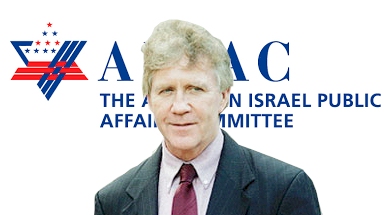Former Defense Department analyst Lawrence A. Franklin was convicted of felonies for passing in 2004 classified military information to two American Israel Public Affairs Committee (AIPAC) lobbyists and an Israeli diplomat. Franklin worked for Under Secretary of Defense Douglas Feith, a major proponent of the disastrous US Iraq invasion. The AIPAC officials tried to use Franklin’s information to get the US to militarily “pivot” toward Iran by getting coverage that Iran was attacking the US in the Washington Post. The two AIPAC officials—Steve Rosen and Keith Weissman—were charged but avoided conviction. Shortly after Obama took office, the Department of Justice abruptly dropped a very solid criminal case developed by the FBI.
Israel affinity organizations and their leaders generally lobby hard to get non-prosecution (urging “prosecutorial discretion”) for cases of major U.S. crimes that benefitted Israel. When that fails, coordinated efforts are made to overturn felony convictions. On October 18, 1961 JFK pardoned “Hank” Greenspun’s felony conviction for smuggling arms during Israel’s War of Independence after intense lobbying. On January 20, 2001 Bill Clinton pardoned “Al” Schwimmer, founder of Israel Aircraft Industries, for similar crimes. On January 1, 2009 George W. Bush issued a posthumous pardon for B-17 bomber smuggler Charles T. Winters after intense lobbying by more than 28 members of congress, the American Jewish Committee, and Jewish federations. Many of them argued that crimes committed for Israel should not be punished and that many others had done much more and not been punished.
In December, the US Pardon Attorney took a hard line and refused to release any correspondence under the Freedom of Information Act for a handful of convicts who recently attempted to engage in similar activities. After an appeal, the Pardon Attorney did disclose that only Lawrence Franklin (PDF) currently has an open petition seeking a pardon from President Obama before he leaves office. Others petitioning in support of his pardon have not gone public—as was the case of Jonathan Pollard—and will likely remain unknown absent a speedy FOIA remand from the Department of Justice Office of Information Policy.

